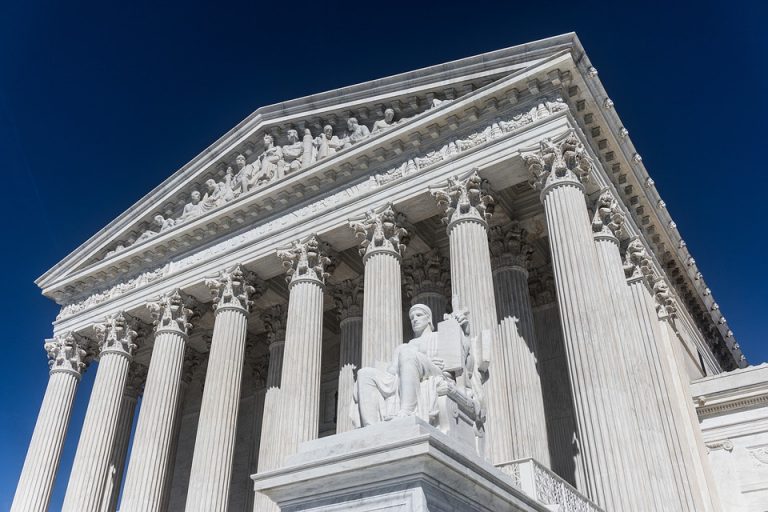On Dec. 8, the state of Texas filed a lawsuit in the U.S. Supreme Court against the battleground states of Georgia, Pennsylvania, Wisconsin, and Michigan. The lawsuit accuses these states of violating the constitution by changing election laws, relaxing ballot integrity procedures and thus triggering vote irregularities, and not treating voters equally.
At the time of publication, 18 other states have now come forward to support Texas’ lawsuit, including Alabama, Arizona, Arkansas, Florida, Indiana, Kansas, Louisiana, Mississippi, Missouri, Montana, Nebraska, North Dakota, Oklahoma, South Carolina, South Dakota, Tennessee, Utah, and West Virginia.
The U.S. Supreme Court has given the defendants the deadline of Dec. 10 to file briefs opposing the Texas suit. The lawsuit is seeking to block the counting of Electoral College votes that have been cast by the 4 states. In cases where the states have already appointed electors, the lawsuit wants new electors to be appointed by the state legislatures. Louisiana Attorney General Jeff Landry requested that the Supreme Court take up the case, arguing that American citizens are concerned about how the current elections have been conducted.
Landry had filed a case earlier on behalf of Louisiana citizens, asking the Supreme Court to look into the actions of the state court in Pennsylvania that disregarded U.S. constitutional rules regarding the conduct of the elections. Landry pointed out that Article 1, section 4 of the American constitution clearly states that it is the state legislature that has the power to prescribe the time, place, and the manner in which elections for Representatives and Senators are to be held. But in states like Pennsylvania, the judicial branch has violated the constitution by seeking to set their own rules on these matters.
The Office of the Louisiana Attorney General stated: “These actions appear to be unconstitutional. If it is unconstitutional for Pennsylvania to take this action, it is similarly unconstitutional for other states to have done the same. Only the U.S. Supreme Court can ultimately decide cases of real controversy among the states under our Constitution. That is why the Justices should hear and decide the case which we have joined representing the citizens of Louisiana. Furthermore, the U.S. Supreme Court should consider the most recent Texas motion, which contains some of the same arguments.”

Success
You are now signed up for our newsletter
Success
Check your email to complete sign up
Arkansas Attorney General Leslie Rutledge supported the Texas lawsuit, noting that the integrity of elections has to be upheld. In Alabama, Attorney General Steve Marshall warned that every unlawful vote will only end up diluting a voter’s right to free exercise of the franchise. Attorney General Eric Schmitt from Missouri remarked that his state is “in the fight” and that he will “lead the effort” in supporting the Texas lawsuit.
Bill to remove deceased voters
Meanwhile, Republican lawmaker Brian Babin has introduced a bill that seeks to purge voter rolls of deceased individuals. “The ease with which someone is able to steal the ballot of a deceased person and cast an illegitimate vote should disturb, alarm, and outrage every American citizen, no matter what side of the aisle they sit on… To protect our democratic process and Americans’ faith in our elections, we must ensure that deceased individuals are not allowed to remain on state voter rolls,” Babin said in a statement.
The bill is being called the “You Must Be Alive to Vote Act.” If counties fail to check their voter lists against death records on an annual basis and remove voters who are identified as dead, they could see their federal funds being withheld. Eight lawmakers have co-sponsored the bill. President Trump alleged earlier that numerous mail-in and absentee ballots cast in this election were done by people who are legally registered as dead.
Follow us on Twitter or subscribe to our email list
















